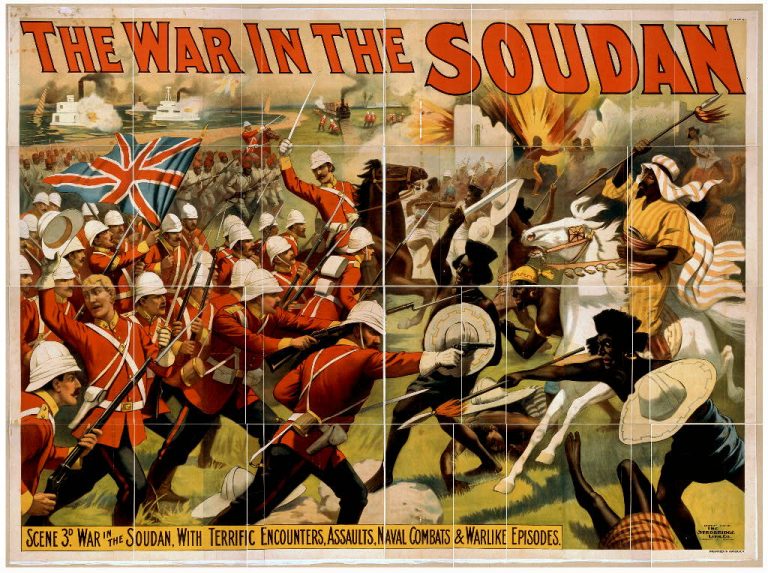
Sudan is, in the last 24 hours, on the verge of civil war.
Clashes between the Sudanese army and the paramilitary Rapid Support Forces, due to their rivalry for power, have left dozens dead and hundreds injured.
Hundreds of thousands of residents of the Sudanese capital, Khartoum, and other areas, including Greeks of the local diaspora, are under threat.
The long-suffering Sudan, which was once an Egyptian-British possession and then as an independent state (since 1956) found itself in the midst of civil conflicts, was, many decades ago, a host country for many Greek immigrants.
The magazine “TAHYDROMOS” with its article on May 10, 1958, presents the way in which the Greek community of Sudan was created, and conditions at the time.
The first wave
“It is of course not easy to determine exactly when the Greeks first entered the Sudan.
“However, it is most likely that the migration flow to this region took on a serious character at the time when Lord Kitchener leading Anglo-Egyptian troops decided to occupy Sudan (1896 – 1898).
“At that time, therefore, many Greeks followed these troops as camp followers and began to create the first noteworthy fortunes.
Consolidation
“Since then, the Greek element has been systematically established in Sudan and is developing at a rapid pace. Merchants, doctors, engineers and all kinds of artisans flocked to this fairy-tale country to such an extent that in 1902 a special community was formed in Khartoum.
“The relevant petition was signed by 134 immigrants and was accepted by the then British administration.
“If these bold pioneers were alive today, they would certainly be amazed and at the same time proud of the prosperity and strength that this community has reached today.

The pyramids at Meroe
The Greek community in independent Sudan
“Indeed, the current Greek community of Khartoum consists of 4,500 expatriates, who hold in their hands the economic life and trade of the Sudanese capital.
The community has succeeded in creating an enviable position for its members. It built an imposing church, founded schools from kindergarten to high school, where about 800 Greek children study.
The teaching staff of the educational institutions are rich, they are paid not exclusively by the Community. (…) To all this we must add various artistic associations and fraternities, to give only a dim picture of the prominent position occupied today by the Greek Community of the capital of Sudan.
Staging area
Khartoum is the starting point, the base used by the Greek immigrants, to penetrate all parts of this rich and unimaginably hospitable country. (…)
Throughout the Sudan, Greek immigrants indulged in trade, practiced various professions and, continuing the civilizing action, which characterizes all the stations of his history, transmits civilization to the Sudanese as well, as a tribute of gratitude to the great country that hosts him so many years.
The Greeks indulged in the gum trade and exploited every valuable local product. (…)
Greeks and locals
It is unnecessary to emphasize here that the relations of the Greeks of Sudan with the natives are more than brotherly.
They have been living and working together for years now without the slightest misunderstanding or friction. The Sudanese two years ago shook off the British yoke and gained their freedom.
In their endeavor, they always found the Greek element on their side. This helped them in all the difficult moments of their history, which strengthened the ties that connect these two elements of the country.
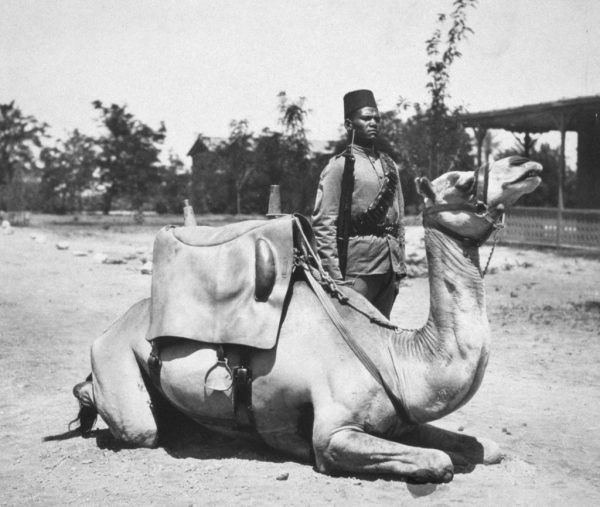
Early 20th century Anglo-Egyptian army local soldier
Colonialism
It is a fact that the new regime very justifiably tries to detoxify the state apparatus from any remnants of colonialism and add a strong nationalist color to it.
After all, this is what all African states are doing, as they are slowly becoming independent. However, this effort does not affect the Greek element at all, which in no way interferes in the governance of the country.
The Greek immigrants are dedicated to their businesses, they are diligent and peaceful elements and as such they offer a huge service to the economic development of the country, which is absolutely necessary to get on its feet and at the same time shake off any foreign patronage”.
Latest News

Trump Tariffs Jeopardize Growth: Piraeus Chamber of Commerce
The tariffs, aimed at reducing the U.S. trade deficit, are expected to have both direct and indirect effects on the European economy

EU Condemns Trump Tariffs, Prepares to Retaliate
As tensions escalate, the EU is expected to continue negotiations with Washington while preparing for potential economic retaliation.

The Likely Impact of Trump Tariffs on Europe and Greece
Trump tariffs are expected to negatively affect economic growth in the Eurozone while Greece's exports could take a hit.

Motor Oil Results for 2024: Adjusted EBITDA of 995 mln€; Proposed Dividend of 1.4€ Per Share
Adjusted EBITDA for 2024 was down 33% yoy. The adjusted profit after tax for 2024 stood at 504 million euros, a 43% decrease from the previous year

Cost of Living: Why Greece’s 3% Inflation Is Raising Alarm
Greece appears to be in a more difficult position when it comes to price hikes, just as we enter the era of Trump’s tariffs.

Fitch Ratings Upgrades the Four Greek Systemic Banks
NBG’s upgrade reflects the bank’s ongoing improvements in its credit profile, Fitch notes in its report, including strong profitability, a reduction in non-performing exposures (NPEs), and lower credit losses

Trump to Announce Sweeping New Tariffs Wednesday, Global Retaliation Expected
With Trump's announcement just hours away, markets, businesses, and foreign governments are bracing for the fallout of one of the most aggressive shifts in U.S. trade policy in decades.

Inflation in Greece at 3.1% in March, Eurostat Reports
Average inflation in the eurozone settled at 2.2%, compared to 2.3% in February

Greece’s Unemployment Rate Drops to 8.6% in February
Despite the overall decline, unemployment remains higher among women and young people.

Jerry Kalogiratos Highlights Key Role of Energy Transition and Data Demand in LNG Outlook
Energy transition and the prospects of LNG were discussed at Capital Link’s 19th Annual International Maritime Forum, during a panel discussion with Jerry Kalogiratos (Capital Clean Energy Carriers Corp.)
























![ΕΛΣΤΑΤ: Αυξήθηκε η οικοδομική δραστηριότητα κατά 15,6% το Δεκέμβριο [πίνακες]](https://www.ot.gr/wp-content/uploads/2025/03/DSC9655-2-1024x569-1-90x90.jpg)

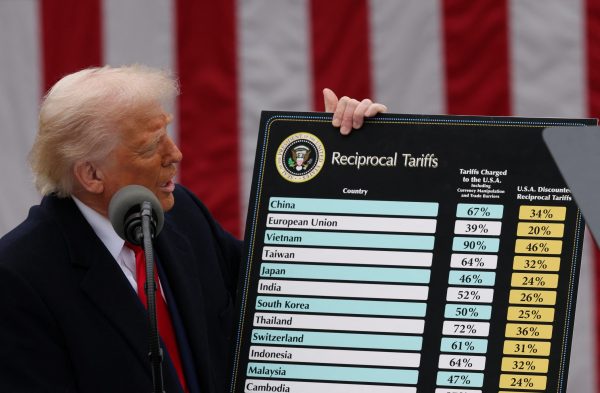
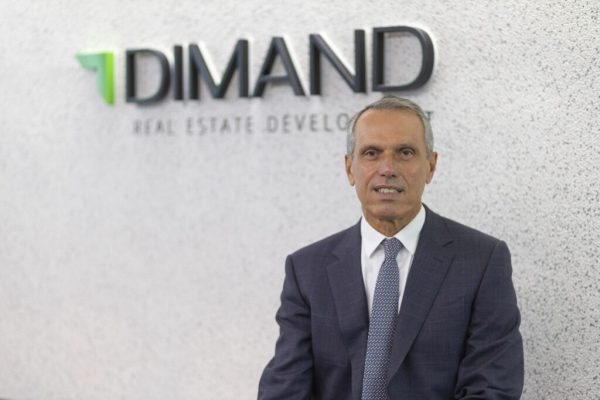
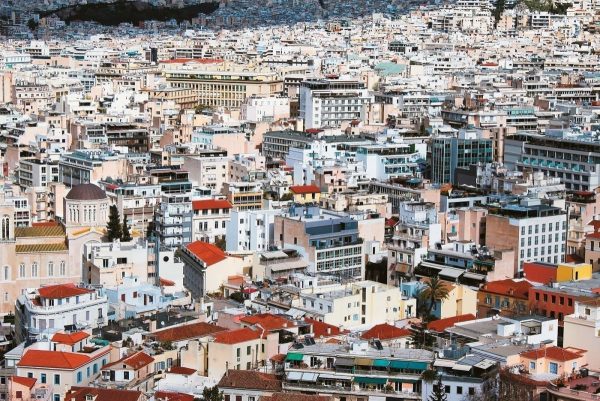
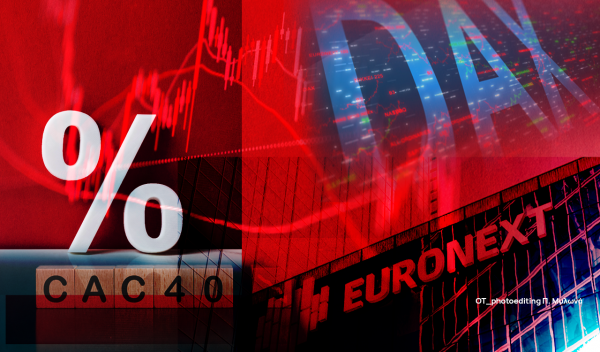








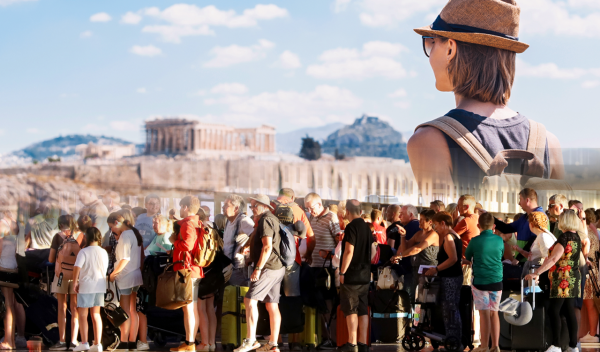


 Αριθμός Πιστοποίησης
Αριθμός Πιστοποίησης